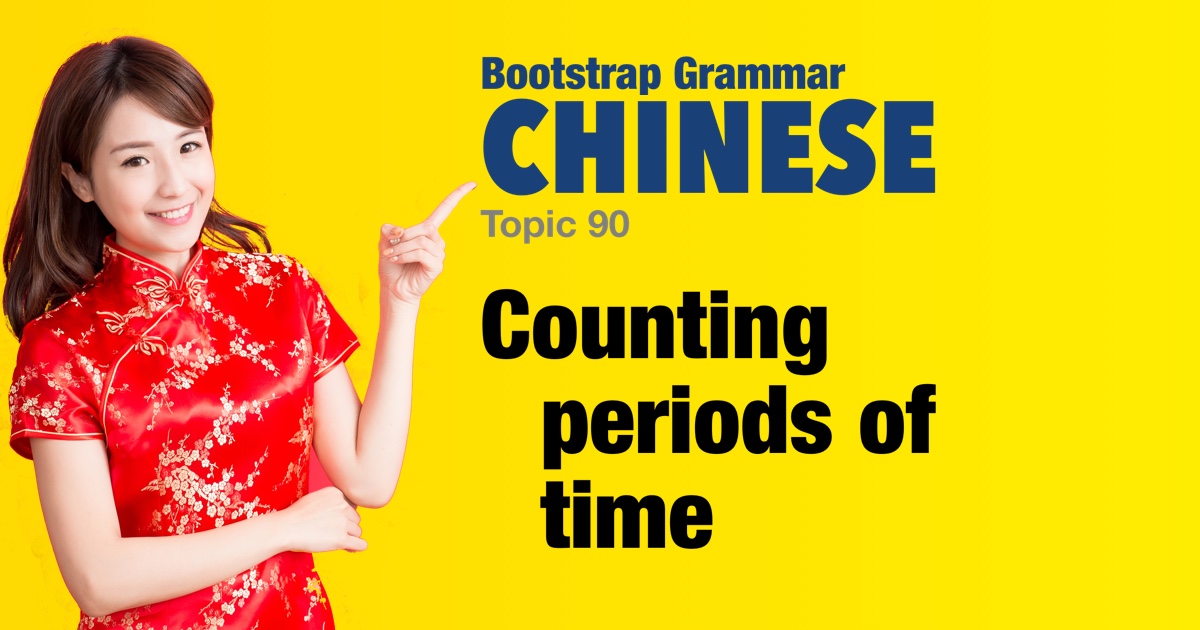Chinese grammar - Counting periods of time |
|||
|
|||
Counting time periods or lengths of time is a little inconsistent in Chinese. Some time periods require the counter (measure word) 个 (gè) while others do not. • 小时 (xiǎoshí) 'hour', 星期 (xīngqī) 'week' and 月 (yuè) 'month' all require the counter 个 (gè). • 分钟 (fēnzhōng) 'minute', 天 (tiān) 'day' and 年 (nián) 'year' do not require any counter. Note that a 'week' is commonly referred to as both 星期 (xīngqī) and 周 (zhōu). 周 is more colloquial and is frequently used in spoken language. |
| Examples: | |
|
我等了一分钟。
wǒ děng le yì fēnzhōng. I waited for one minute.
|
|
|
我等了十分钟。
wǒ děng le shí fēnzhōng. I waited for ten minutes. |
|
|
我等了一个小时。
wǒ děng le yí gè xiǎoshí. I waited for one hour. |
|
|
我等了三个小时。
wǒ děng le sān gè xiǎoshí. I waited for three hours. |
|
|
我等了一天。
wǒ děng le yì tiān. I waited for one day. |
|
|
我等了五天。
wǒ děng le wǔ tiān. I waited for five days. |
|
|
我等了一个星期。
wǒ děng le yí gè xīngqī. I waited for one week. |
|
|
我等了十二周。
wǒ děng le shí'èr zhōu. I waited for twelve weeks. |
|
|
我等了一个月。
wǒ děng le yí gè yuè. I waited for one month. |
|
|
我等了五个月。
wǒ děng le wǔ gè yuè. I waited for five months. |
|
|
我等了一年。
wǒ děng le yì nián. I waited for one year. |
|
|
我等了二十年。
wǒ děng le èrshí nián. I waited for twenty years. |
|
|
他学了三年的英语。
tā xué le sān nián de yīngyǔ. He studied English for three years. |
|
|
我们休息了一个小时。
wǒmen xiūxi le yí gè xiǎoshí. We rested for an hour. |
|
|
我们在欧洲旅行了三个月。
wǒmen zài ōuzhōu lǚxíng le sān gè yuè. We traveled in Europe for three months.
|
|
|
她住在那里一年三个月。
tā zhù zài nà lǐ yì nián sān gè yuè. She lived there for one year and three months. |
|
|
今天的课是两个小时。
jīntiān de kè shì liǎng gè xiǎoshí. Today the class is for two hours.
|
|
 |
|



